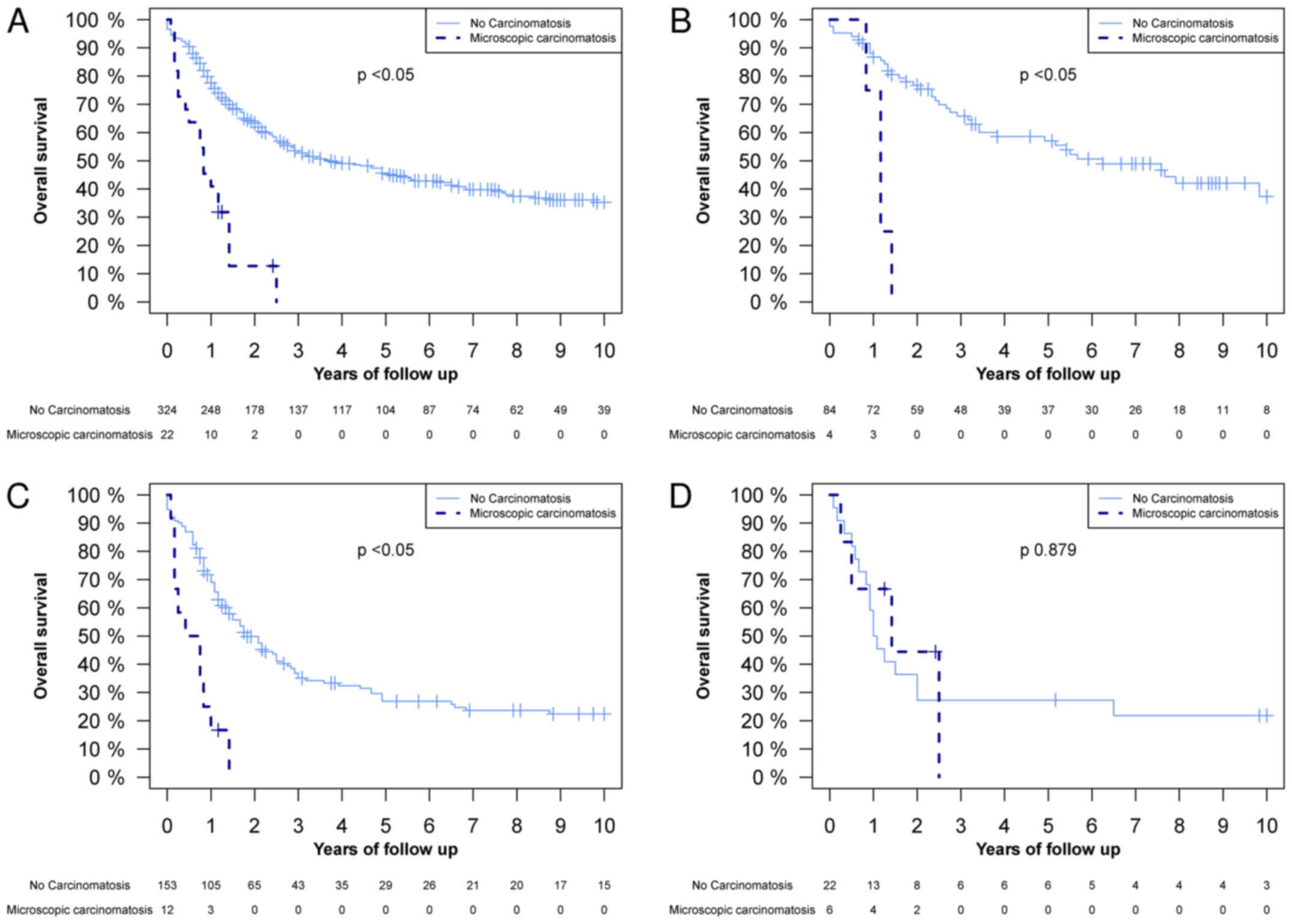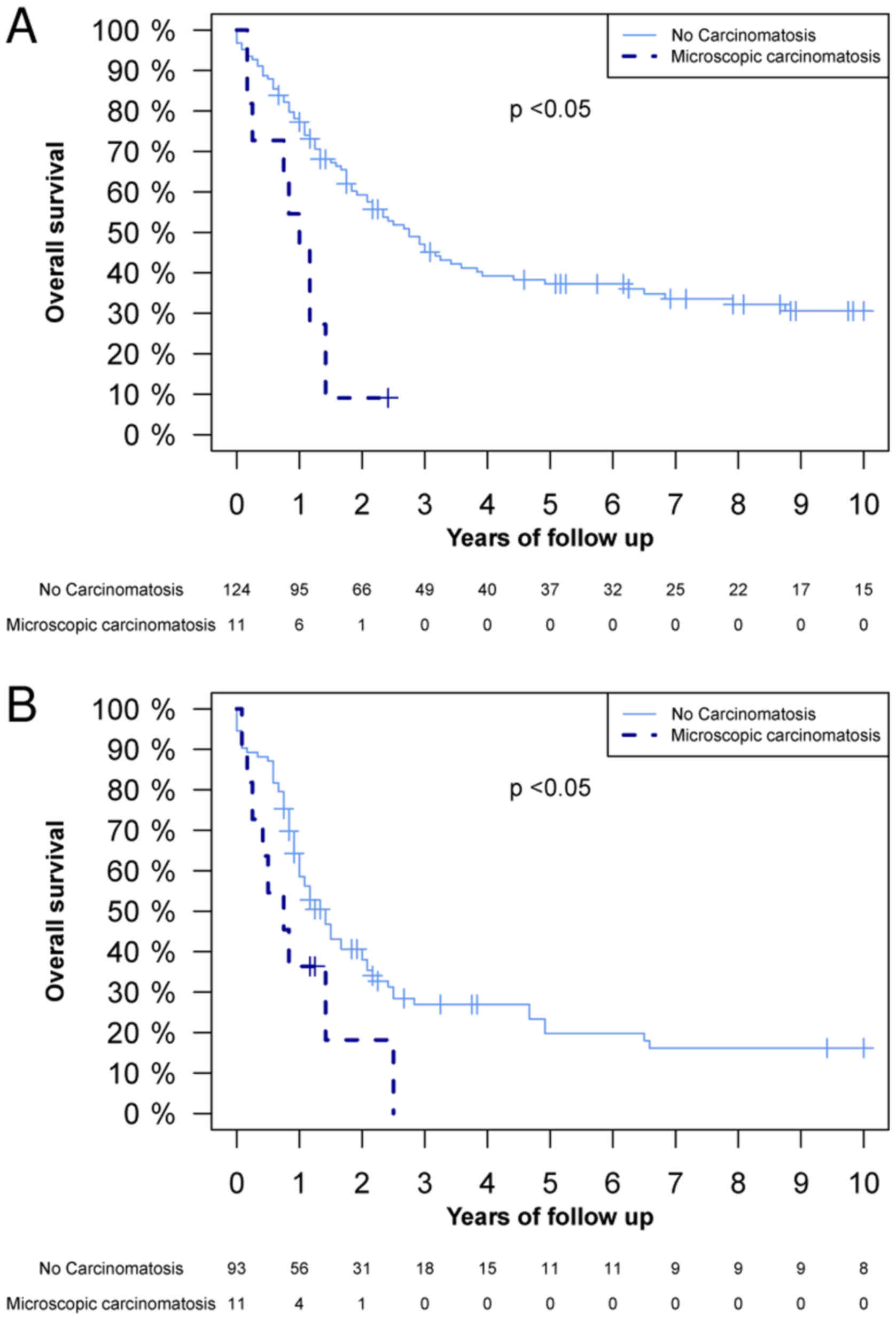Spandidos Publications style
Pasqual EM, Bertozzi S, Londero AP, Brandolin D, Mariuzzi L, De Pellegrin A, Bacchetti S, Zoratti L, Petri R, Della Bianca C, Della Bianca C, et al: Microscopic peritoneal carcinomatosis in gastric cancer: Prevalence, prognosis and predictive factors. Oncol Lett 15: 710-716, 2018.
APA
Pasqual, E.M., Bertozzi, S., Londero, A.P., Brandolin, D., Mariuzzi, L., De Pellegrin, A. ... de Manzoni, G. (2018). Microscopic peritoneal carcinomatosis in gastric cancer: Prevalence, prognosis and predictive factors. Oncology Letters, 15, 710-716. https://doi.org/10.3892/ol.2017.7442
MLA
Pasqual, E. M., Bertozzi, S., Londero, A. P., Brandolin, D., Mariuzzi, L., De Pellegrin, A., Bacchetti, S., Zoratti, L., Petri, R., Della Bianca, C., Snidero, D., Terrosu, G., Uzzau, A., Risaliti, A., Di Loreto, C., Pizzolitto, S., Zilli, M., de Manzoni, G."Microscopic peritoneal carcinomatosis in gastric cancer: Prevalence, prognosis and predictive factors". Oncology Letters 15.1 (2018): 710-716.
Chicago
Pasqual, E. M., Bertozzi, S., Londero, A. P., Brandolin, D., Mariuzzi, L., De Pellegrin, A., Bacchetti, S., Zoratti, L., Petri, R., Della Bianca, C., Snidero, D., Terrosu, G., Uzzau, A., Risaliti, A., Di Loreto, C., Pizzolitto, S., Zilli, M., de Manzoni, G."Microscopic peritoneal carcinomatosis in gastric cancer: Prevalence, prognosis and predictive factors". Oncology Letters 15, no. 1 (2018): 710-716. https://doi.org/10.3892/ol.2017.7442
















